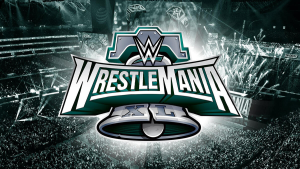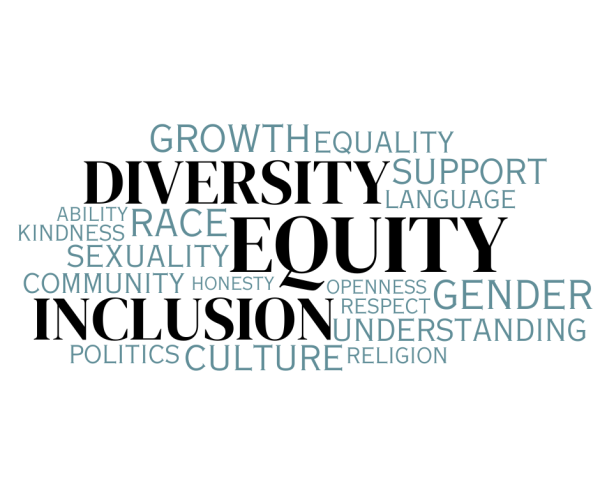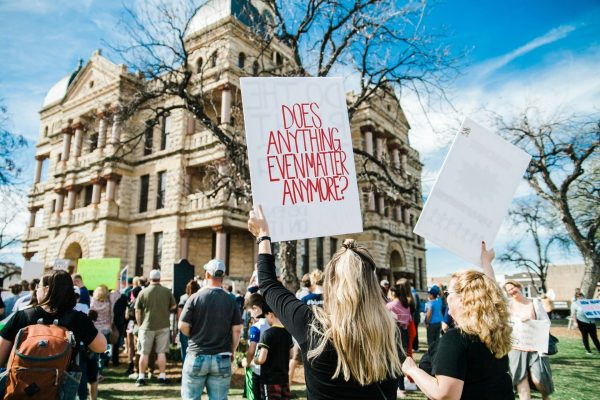Should NCAA Athletes Profit From Their Names, Image And Likeness?
November 5, 2019
It’s been one of the most talked about topics in collegiate sports and perhaps one of the most controversial topics in recent history – should college athletes be paid? Up until a week ago, the National Collegiate Athletic Association would not budge on their stance that student-athletes would not get paid for the use of their the names, images and likeness at universities. But their historic mindset appears to have changed.
Recently, the top governing board decision-makers of the NCAA voted unanimously to start the process of allowing college athletes to profit from a university using them to create revenue.
“We must embrace change to provide the best possible experience for college athletes,” Michael V. Drake, chair of the board and president of The Ohio State University, said in an NCAA statement release. “Additional flexibility in this area can and must continue to support college sports as a part of higher education.”
This vote is believed to be a step in the right direction for the NCAA but many are still skeptical, as this ruling is nothing more than an acknowledgment that things have to change.
“It’s not the final step but it’s an important step,” Central Connecticut’s Director of Athletics Brian Barrio said. “There’s been a realization, which is a good thing, that these laws aren’t going to go away and this pressure is not going to go away.”
He believes the pressure created by the states forced the NCAA to “get ahead” of everything and put the process into their own hands.
This pressure the NCAA began to feel came in the form of a California bill that was signed by Governor Gavin Newsom that bypassed the NCAA’s rules and allowed college athletes to profit from their names, image and likeness. Other states appeared to be following that model before the NCAA stepped in with this vote.
“I think it was everything,” Barrio said.”The lawmakers in these states have no idea about all the nitty-gritty procedures at [the collegiate level] and if we let them make all the decisions, then this thing is going to blow up.”
Now, the NCAA will continue to look into the specifics of just how to pay student-athletes “in a manner consistent with the collegiate model,” according to their release. There are many who have an opinion of what is fair and what the rules should consist of.
“I’ve been saying for a number of years that what needs to be addressed is the ability of a student-athlete to monetize their name,” Barrio said. “I’m a big fan of the NCAA’s amateurism model, so I’d very much be against any legislation that allowed schools to pay student-athletes like their employees because I truly don’t think they’re employees. But I find it unreasonable in the modern economy and society to tell these young men and women that they can’t monetize their name, image, and likeness.”
Central Connecticut football head coach Ryan McCarthy has a slightly different mindset compared to Barrio.
“I see both sides of it, I’m kind of neutral on the whole thing,” McCarthy said.
“I feel like when kids are on scholarships, and their college education is being paid for, they’re playing a game, a sport and I understand the commitment, but part of me says they’re already getting $40-50 thousand a year or whatever it is. I don’t know if they should be getting paid to play a sport when on top of that, they’re getting their education getting paid for.”
McCarthy shared it has taken him ten years to pay off his college loans and he believes that getting an education for free is the most important thing for an athlete, at the end of the day.
“I think I’m on the other side of it but if I was an athlete I might have a different stance on it,” McCarthy said.
Central Connecticut’s starting quarterback Aaron Winchester did not hesitate with his answer on the topic, believing collegiate athletes have a right to be paid for what they bring to the table to their respective universities.
“Absolutely,” Winchester said. “But I don’t think it should be the same [for everyone]. I think whatever you bring into [the university], that’s what you should get paid.”
Realistically, only a small percentage of collegiate players would be seen as good enough to be worth more than what they are already making via their scholarships to some of the top universities in the country but every athlete deserves the opportunity that every other student gets.
“This is just putting the athletes on the same level as everyone else,” Barrio said. “On-campus you have social media influencers, party promotors or DJs [that make money], those are all things that athletes are not allowed to do.”
“A lot of college students do not have any money, if we’re not putting any restrictions on any other student on making money, then why are we doing that to student-athletes,” Barrio said.
“Johnny Manziel [for example], in college he came up with the whole “Money Manziel” thing and if he wants to make a shirt and profit off of that then he should,” Winchester said. “Regular students can do that, so why can’t athletes?”
Manziel was a former college football star who played for the Texas A&M Aggies in 2012 and 2013.
“[That] conflict exists for like one percent of the student-athletes in Division One and almost zero percent in Division Two or Three,” Barrio said.
“I’ve seen it when I was at USC (University of Southern California). There’s the top athletes of [various sports] that could be getting endorsement deals tomorrow, or at least be getting something for free but they’re not allowed to do that because of NCAA rules.”
Understandably, Central Connecticut is different compared to one of the top collegiate universities like USC and other places he has previously worked in.
“USC is [the top] end of the spectrum and Central is probably another far end because we have very few student-athletes who can monetize their name, image and likeness but I’ve been in the middle too at Nevada or Pepperdine and we had a handful of student who could make some money doing appearances or doing endorsements,” Barrio said. “I don’t see why they should be able to do that.”
As far as how the logistics go for Barrio, he thinks that the individual market for an athlete should determine how much they can potentially get paid. He also has an alternative solution that doesn’t require athletes getting paid at all.
“The real solution should be that if you are not interested in going to college, you shouldn’t be playing college sports,” Barrio said. “But that’s really the result of the National Football League or the National Basketball Association having age limits and there isn’t much we can really do about that.
At the end of the day, “the money finds it’s way into the programs, one way or another,” according to Barrio and all anyone can do is wait and see what the NCAA puts into place regarding collegiate athletes making a profit from their name, image and likeness.
The proposed timetable for their rules to take effect is no later than 2021.








